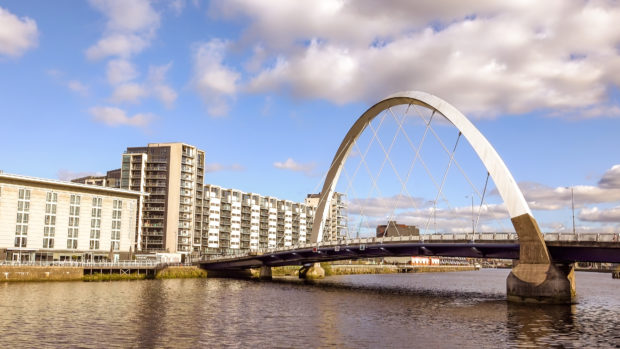
City deals lack provisions to measure their long-term success, Scotland’s public sector watchdog has warned.
A report by the Accounts Commission and Audit Scotland, published on Thursday, found the £5.2 billion deals may have already missed opportunities to meet national targets due to a lack of measures to track progress.
City deals saw agreements made between the UK Government, Scottish Government and local authorities to fund and deliver improvements, largely comprised of major infrastructure projects.
Glasgow was the first to sign its £1 billion deal in 2014 and another three have been agreed since then – in Aberdeen, Inverness and the Highlands, and Edinburgh and south-east Scotland – with more expected to be unveiled in future.
But despite a lack of performance measures put in place by the Scottish Government, Audit Scotland said the deals, which are due to last between 10 and 20 years, are having an overall positive effect on Scotland and the economy.
Accounts Commission chairman Graham Sharp said: “City deals have had a positive effect across Scotland, strengthening relationships between councils, government, business, our universities and other partners.
“It’s early days but it’s important lines of accountability for deals are now made clearer and that the right staff are in place to develop and deliver deals at a time of considerable financial pressure for councils and the wider public sector.”
Caroline Gardner, Scotland’s Auditor General, said: “A significant amount of public money has been committed to city deals, but the programme’s lack of aims and objectives means opportunities may already have been missed to ensure deals contribute to national outcomes.
“The Scottish Government needs to show how it will measure deals’ long-term success and work with councils to improve transparency around the approval process for individual projects.”
Current scrutiny arrangements were also pinpointed by the report, which said they are “still evolving”, adding it “remains untested how accountability will work in practice”.
The report said: “Sound governance requires bodies to clearly set out how and when decisions are scrutinised, how risks are managed, and who, or what organisation, is responsible if things go wrong.”
Auditors recommend the Scottish Government devises measures to assess the long-term impact of city deals, including their value for money.
The Scottish Government accepted the findings of the report, pledging to reflect on them in conjunction with the UK Government and local authorities.
A spokesman said: “We welcome the report, which clearly highlights the positive effect that city region and growth deals are having across Scotland – strengthening relationships between councils, government, business, universities and other partners.
“Including our additional investment, the Scottish Government’s commitment to deals now exceeds £1.8 billion and we are already taking steps to improve how we measure the long term success of our deals programme.
“Together with UK Government and our local government colleagues, we will reflect on these recommendations as we take forward existing and new deals to ensure the best possible outcomes for the people of Scotland.”
Jenny Marra, convener of Holyrood’s Public Audit Committee, said: “The positive potential offered by city deals by way of increased investment, collaboration between councils and their partners and overall economic development in Scotland is clear.
“This report, however, highlights concerns around how the Scottish Government intends to measure the initiative’s long-term success and its contribution to the National Performance Framework.
“The committee will, no doubt, also want to explore the transparency of project selection and funding decisions.”
Scottish Greens co-leader Patrick Harvie said the report shows city deals are “opaque and directionless”.
He said: “While it would be hard to spend £5.2 billion without some kind of positive impact, this troubling report reveals just how opaque and directionless (former chancellor) George Osborne’s city deals have turned out in Scotland.
“No doubt some worthwhile projects have been funded, but in many places old proposals that just never made sense have been dusted down and given the green light.
“This report should be a wake-up call to the Scottish Government.
“Scotland’s city and region deals need to stop financing failed old models of city planning like bypasses and flyovers and be re-profiled to prioritise efforts to lower emissions and build the sustainable, inclusive cities of the future.”

Enjoy the convenience of having The Sunday Post delivered as a digital ePaper straight to your smartphone, tablet or computer.
Subscribe for only £5.49 a month and enjoy all the benefits of the printed paper as a digital replica.
Subscribe